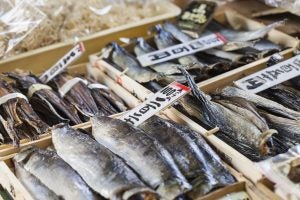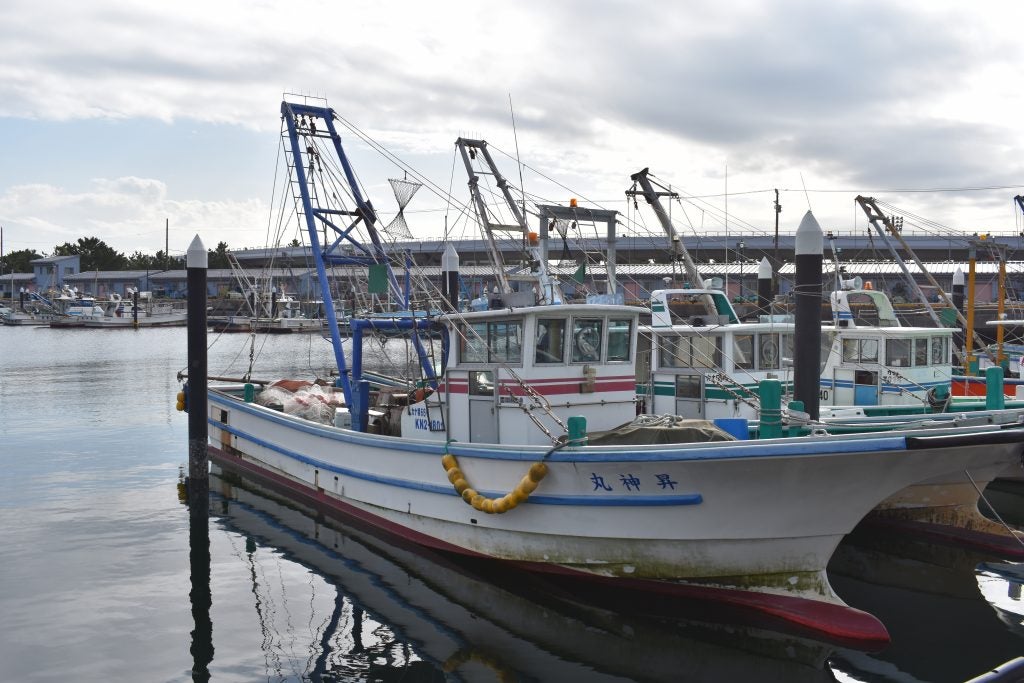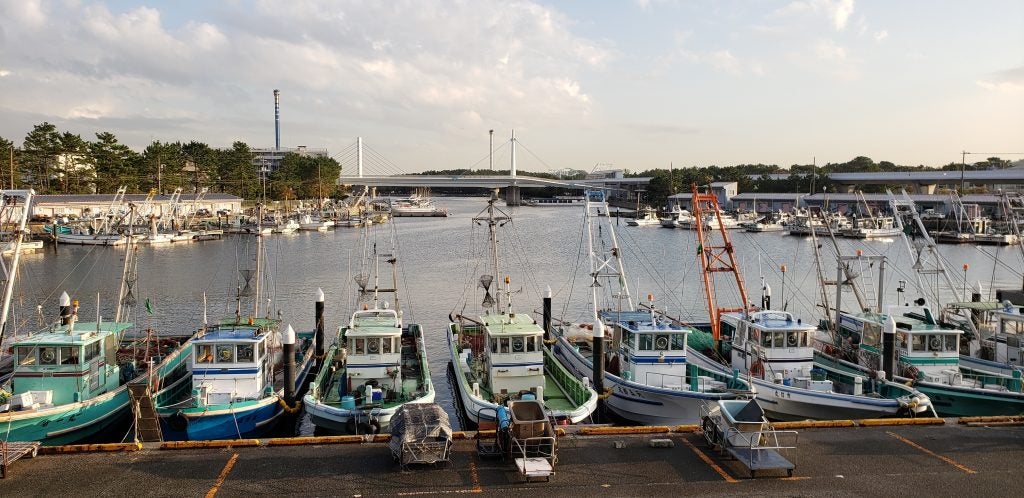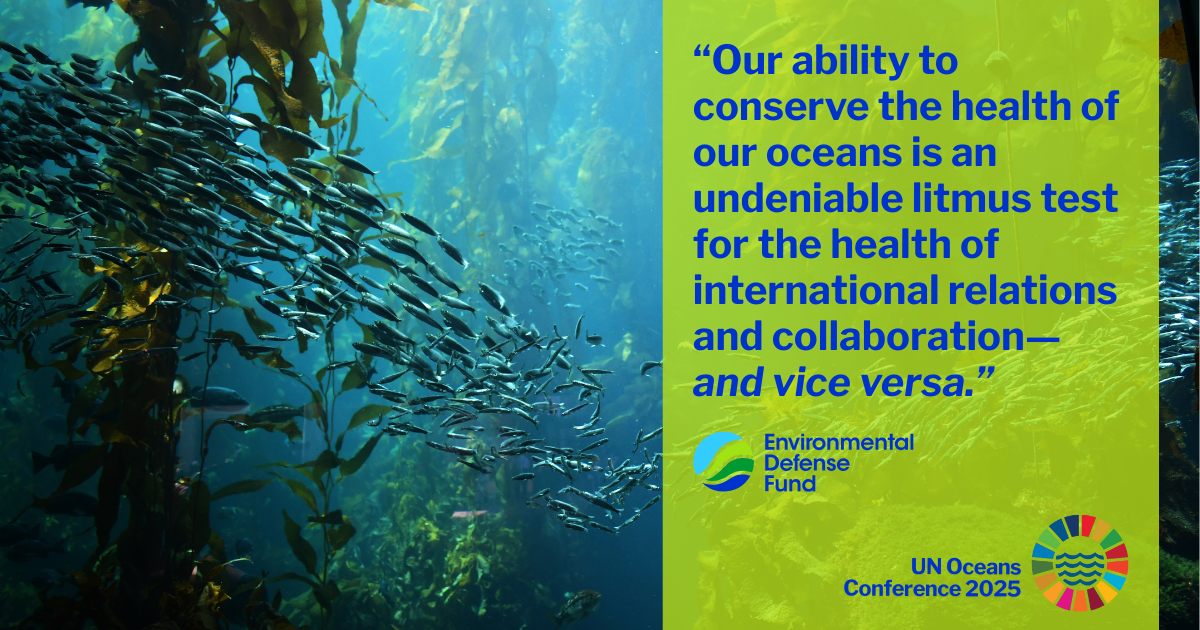Deepening scientific understanding and international collaboration to enhance climate resilience
With a record drought depleting rivers and reservoirs, wildfires burning across the Western U.S., historic floods in Germany and China, landslides in Japan, and my own notoriously wet and dreary hometown of Portland, Oregon hitting 115 degrees recently, it’s hard to avoid thinking about climate change. But while the terrestrial impacts are wide-ranging and obvious, impacts to our oceans — no less disruptive — are generally less visible. Yet, healthy oceans are critical for sustainable fisheries and other vital ecosystem services. Fisheries provide jobs for hundreds of millions of people globally, and billions rely on seafood as an important source of protein and micronutrients.
Sustainable fisheries management — necessary to rebuild depleted stocks and maintain stable harvest of healthy stocks — is challenging at the best of times. We can’t simply count fish as you can with many terrestrial species. And understanding age structure, range, life history characteristics and other important biological information is especially challenging because vital data is often difficult and expensive to collect. Climate change will compound these scientific challenges and create new management challenges, especially for stocks that shift across international borders.
 That’s why we were excited to host a recent two-day fisheries and climate workshop with more than 75 scientific experts from NOAA Fisheries, as well as the Fisheries Research and Education Agency of Japan, Japan Fisheries Agency, and Environmental Defense Fund. The workshop, titled “The Fate of Fisheries in a Climate Changed World,” explored the impact of climate change on fisheries through the lenses of oceanography, marine ecology and fisheries biology, as well as sociology and economics. With expert presentations as well as interactive discussion, the workshop was designed to highlight key data gaps and foster collaboration to advance science and create climate forecasts that better help governments strengthen the resiliency of fisheries to climate change.
That’s why we were excited to host a recent two-day fisheries and climate workshop with more than 75 scientific experts from NOAA Fisheries, as well as the Fisheries Research and Education Agency of Japan, Japan Fisheries Agency, and Environmental Defense Fund. The workshop, titled “The Fate of Fisheries in a Climate Changed World,” explored the impact of climate change on fisheries through the lenses of oceanography, marine ecology and fisheries biology, as well as sociology and economics. With expert presentations as well as interactive discussion, the workshop was designed to highlight key data gaps and foster collaboration to advance science and create climate forecasts that better help governments strengthen the resiliency of fisheries to climate change.
Japan, one of the world’s leading countries in seafood consumed per capita and a major fishing power in its own right, recently passed a historic Fishery Reform Act, the first major fisheries legislation in Japan in roughly 70 years. The act, which went into effect in December and will be fully implemented by 2024, calls for most of Japan’s catch to be managed with science-based catch limits, as well as for hundreds of new stock assessments for previously unassessed species, laying a strong foundation for sustainable fisheries management and thriving fishing communities in Japan. EDF is working closely with NGO and academic partners as well as the FRA and JFA to ensure that the legislation fulfils its potential. And in order to ensure that the fishery reform is durable to looming climate changes — especially in a region of the world already rife with significant international fishery management and allocation challenges — it is critical that Japan and other regional players begin to coordinate and collaborate on fisheries science. This workshop was an important first step in that direction.
In his keynote address, Dr. Manuel Barange, Director of Fisheries and Aquaculture Policy at FAO, noted that “The impacts of climate change and fisheries are not a zero-sum game. This is not about minimizing damages or maintaining the status quo. It is also about maximizing opportunities … We cannot do much to convince a species not to change its distribution. But we can do a lot in terms of maximizing our response.” To this hopeful theme he added that adapting to our new future will require a collaborative multi-disciplinary approach that manages fisheries for coming changes rather than stability. Many other speakers struck a similar chord, noting that this challenge can only be addressed through strong international collaboration.
In addition to a focus on greater coordination and collaboration, several other key themes emerged, including a need for greater data collection and sharing to power new climate models, translating science to action, and the need for new tools and processes to fairly and equitably allocate fish stocks as they start to leave their historic ranges.
While this workshop represents just one small step, we hope it was the first in a series of such workshops that will foster greater connection and trust, and over time, include other countries in the region in developing a shared vision for our ocean resources.














